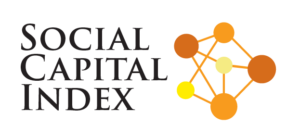The Utah Foundation’s Social Capital Index project is a series of reports that measure whether Utah is thriving in terms of its “social capital.” Put simply, social capital refers to the ways in which individuals can leverage connections between people and social networks for the benefit of themselves or their community.
This series of reports details objective measures to create an index that can help describe how social capital changes over time and varies across states. To that end, the Utah Foundation has collected over thirty measures of different aspects of social capital, covering topics such as family structure, community participation, and economic mobility. These reports and the index will help the public and policymakers better understand whether Utah is thriving socially.
This first report provides an overview of what social capital is and why it matters to Utahns. This report discusses the different forms of social capital, its importance, potential drawbacks, measurement methods, and the limitations associated with studying it.

Highlights of this Report
- Social capital refers to the networks and social connections that advance the interests of both individuals and communities. It requires high levels of trust, reciprocity, and community interaction.
- High levels of social capital are associated with better resource allocation and social cohesion, accelerated economic development and mobility, improved education and health outcomes, stronger community engagement and disaster resilience, and reduced reliance on government services.
- Social capital encompasses three types of connections: bonding (between individuals with shared demographics or values), bridging (between individuals with different backgrounds), and linking (between individuals with different levels of power).


